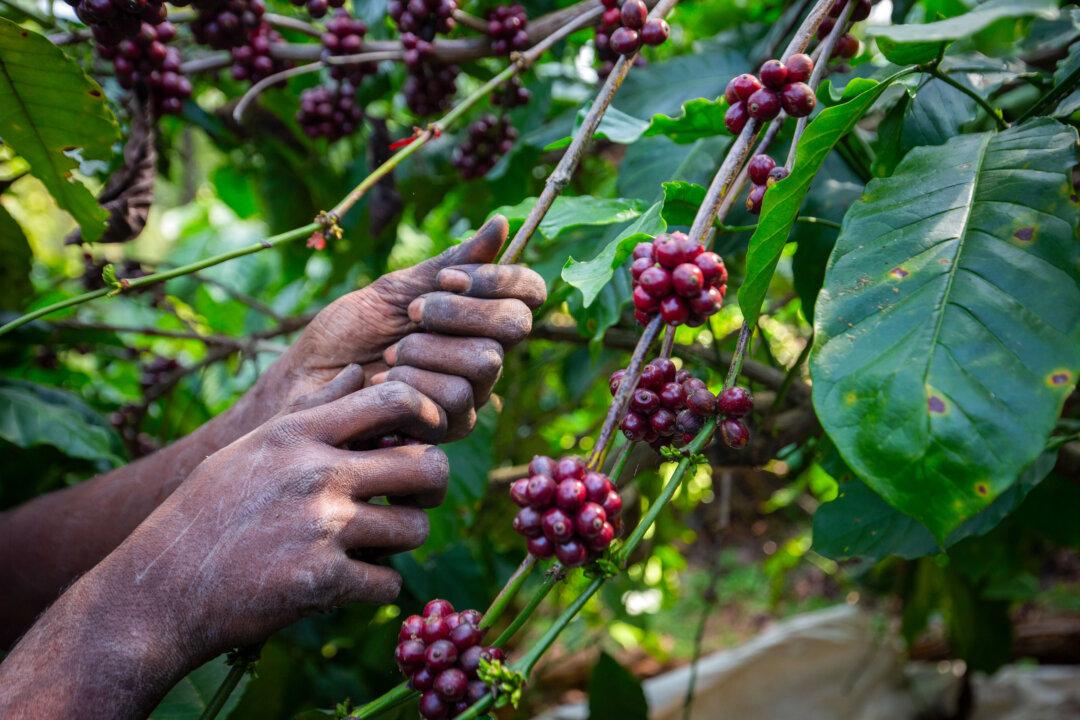The coffee price in the commodities market has reached an almost five-decade high following concerns of adverse conditions impacting crop output and ongoing supply chain issues.
Coffee futures were trading at about $3.28 per pound on Nov. 27 at the Intercontinental Exchange, surpassing the previous high of more than $3.11 set in 1977. The price closed at just above $3.23 per pound on Nov. 29. Similar to 1977, when there was a coffee production crisis in Brazil, the largest supplier of arabica beans, that country is currently struggling to fully recover from this year’s drought, resulting in worries about next year’s crop.





